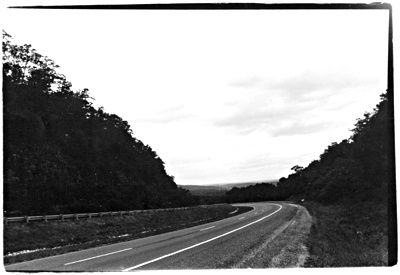All Nonfiction
- Bullying
- Books
- Academic
- Author Interviews
- Celebrity interviews
- College Articles
- College Essays
- Educator of the Year
- Heroes
- Interviews
- Memoir
- Personal Experience
- Sports
- Travel & Culture
All Opinions
- Bullying
- Current Events / Politics
- Discrimination
- Drugs / Alcohol / Smoking
- Entertainment / Celebrities
- Environment
- Love / Relationships
- Movies / Music / TV
- Pop Culture / Trends
- School / College
- Social Issues / Civics
- Spirituality / Religion
- Sports / Hobbies
All Hot Topics
- Bullying
- Community Service
- Environment
- Health
- Letters to the Editor
- Pride & Prejudice
- What Matters
- Back
Summer Guide
- Program Links
- Program Reviews
- Back
College Guide
- College Links
- College Reviews
- College Essays
- College Articles
- Back
Childhood and Adolescence in The Road
For many people, their childhood is built on a foundation of love, happiness, and safety. They have a net to fall back onto, and never have to worry about anything. Food is always available, the house is always standing, parents are ready with hugs. However, after an apocalypse, nothing is certain anymore, especially for children. In The Road by Cormac McCarthy, the childhood of the young boy is shaped by instability and terror. This constant struggle helps create the meaning of survival in the novel.
Since the beginning of this child’s life, he’s been struggling to survive. Near starvation, exhaustion, and never-ending threats to his life are building this boy into who he is. Despite this, his heart is full of warmth and kindness. He still manages to retain his child-like ability to care about and for everyone. An example of this is when the two meet Ely. The boy, near tears, convinces his father to give the stranger asylum for the night. He pities the man, worries for his well-being—even though this man could pose a real threat to their survival—and takes care of him to the best of his ability. This young boy is someone willing and able to wield his gentle nature, his nurturing soul, to care for anyone. This is the root his innocence. These wholehearted actions are what make him a child. An angel. Another example is when his father finds and makes him hot chocolate. The boy is excited—he hasn’t had anything like it before—and revels in the experience. However, he’s quick to ask his father to have some as well, to share in the magic. His sincerity and grace have once again reached another person. His father is touched, albeit confused as to where such a child came from. How could such a cruel and unforgiving world grant an angel of a boy to him? The young boy is a miracle, and his nature is proof of that. A child’s innocence is an extremely strong force in their world and is shown through the young boy’s generosity.
This boy, no matter how gentle he may be, is still having to mature quickly in this world. He’s constantly worrying for others, and it’s always in a very maternal way. While this is a value some children have, this boy seems to have learned it. Seeing death every day probably made him this way. Either way, he puts others before himself every time. One example of this is when he gets better from being sick. He could’ve died, and almost did, but immediately he worries for his father. He hides the fact that he had some disturbing dreams in the hopes that he won’t burden his father even more. Normally, a child would run crying to their parents if they have a nightmare, but this boy bottles it up. This is something an adult would do. He’s more mature than his own father was when he was young, and probably still more now. Growing up in a harsh environment, where death lingers around your feet, forces people to mature faster. You can’t risk being silly and childish—you might get killed. And while this boy is by no means “grown up” enough to survive on his own, in every right he’s older than his years. Another example is when his father is about to enter the bunker for the first time. The boy is extremely nervous and scared, crying to his father not to enter. While this may look like the boy is immature, he’s worrying for his father. He doesn’t want anything horrible to happen to him. His tears are ones of concern, not childishness. Again, his inborn nature of kindness shines through and acts. He manages to be a sweet, yet terrified, child and a concerned adult at the same time, a feat other people couldn’t pull off.
This boy, throughout the novel, is proof you need more than strength to survive. You need wit, finesse, a merciful heart and the maturity of an adult. His morals have helped keep him alive. He does suffer at times but pulls through in the end because of his nature, his ability to survive, and his drive to thrive in the world his father helped him learn.

Similar Articles
JOIN THE DISCUSSION
This article has 0 comments.
